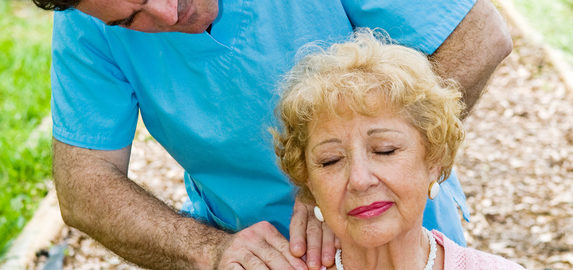You’ve been spending the entire day at University Mall on a mission to find the perfect dress or pants to attend an upcoming wedding. You head home with a smile on your face. Your endurance has paid off – or so you think. As you slip on your spectacular outfit, a prehistoric growl rises from your stomach. You frown: is IBS declaring war on you again? Your stomach has bloated to the size of a small pumpkin, and no matter how hard you try, there’s no way you can squeeze back into your new clothes. Recover your wellbeing and equilibrium after an IBS attack through acupuncture treatments.
What Is IBS?
Irritable bowel syndrome is estimated to occur in about 10 to 20 percent of the population in the U.S. Symptoms occur when stress results in colon spasms, resulting in abdominal pain and discomfort.
There is no specific test to diagnose IBS, and its causes are unknown. Some studies suggest that a glitch in the nervous system may heighten the sensitivity of the lower digestive tract. This means that harmless muscle contractions or simple gas lead to pain, bloating and a plethora of other problems.
Typical symptoms of IBS include:
- Abdominal cramping
- Bloating
- Diarrhea
- Constipation
- Discomfort
- Gas
- Fatigue
- Headaches
Since these symptoms occur frequently with other disorders, your physician will most likely rule out other possible diseases before diagnosing you with IBS. Chances are that if you’re also experiencing weight loss, rectal bleeding, nausea, fever, or anemia, you’ll need to undergo further testing.
Keep in mind that as unpleasant as IBS can be, your intestines remain unharmed, so you and your healthcare professional should focus on how to prevent the reoccurrence of symptoms.
Treatment for IBS
IBS symptoms vary from person to person, so there is no set treatment course for the disorder. Treatment includes:
- Keeping a food diary to identify foods that seem to trigger your IBS symptoms
- Visiting an integrative medicine clinic, such as Acupuncture Balanced Health, to learn about pain and stress management techniques
- Integrating yoga, meditation and breathing techniques to lower your stress levels
- Consulting your physician to learn more about your options for prescription medications, such as anticholinergic and antispasmodic drugs, or antidepressants for pain management
- Trying acupuncture for digestive disorders
- Trying hypnosis
- Increasing your exercising habits, which help reduce stress and maintain bowel regularity
What About Nutrition and Natural Supplements?
Avoiding foods that cause IBS symptoms seems like an obvious step, but it can take up to a month or so to correctly pinpoint what foods propel you to groan and moan. However, a 2005 study on IBS patients published in the American Journal of Gastroenterology linked excess bloating and gas to consuming wheat, beef, pork, lamb and soybeans.
Individuals have also reported relief after taking other measures. You may also wish to:
- Increase your fiber intake.
- Avoid dairy foods, stimulants and non-nutritive sweeteners.
- Refrain from overeating.
- Take probiotics.
- Ingest peppermint oil 15 to 30 minutes before eating.
- Start taking turmeric powder – turmeric is a powerful antioxidant and anti-inflammatory, and it also reduced IBS symptoms by 50 percent in a 2004 pilot study.
Acupuncture for Digestive Disorders
According to the British Acupuncture Council, spasms in the colon are closely related to the sympathetic nervous system’s response to stress. Acupuncture can activate the opposing parasympathetic nervous system, initiating the ‘rest and digest’ response. Some IBS patients have reported experiencing great relief with acupuncture.
Acupuncture Balanced Health
If you’re tired of planning your social life (or lack thereof) around your meals, contact us to make an appointment. By offering traditional Chinese medicine and integrative medicine consultations, Acupuncture Balanced Health is dedicated to reducing your IBS symptoms and improving your quality of life. Bringing you the best of Western and Eastern medicine, our team of experts includes traditional Chinese medicine physicians and a board-certified physician with expertise in integrative medicine and acupuncture research. Acupuncture Balanced Health is committed to assembling a personalized plan that will meet all of your individual needs and health goals – including ensuring your new clothes still fit you after a shopping spree.




